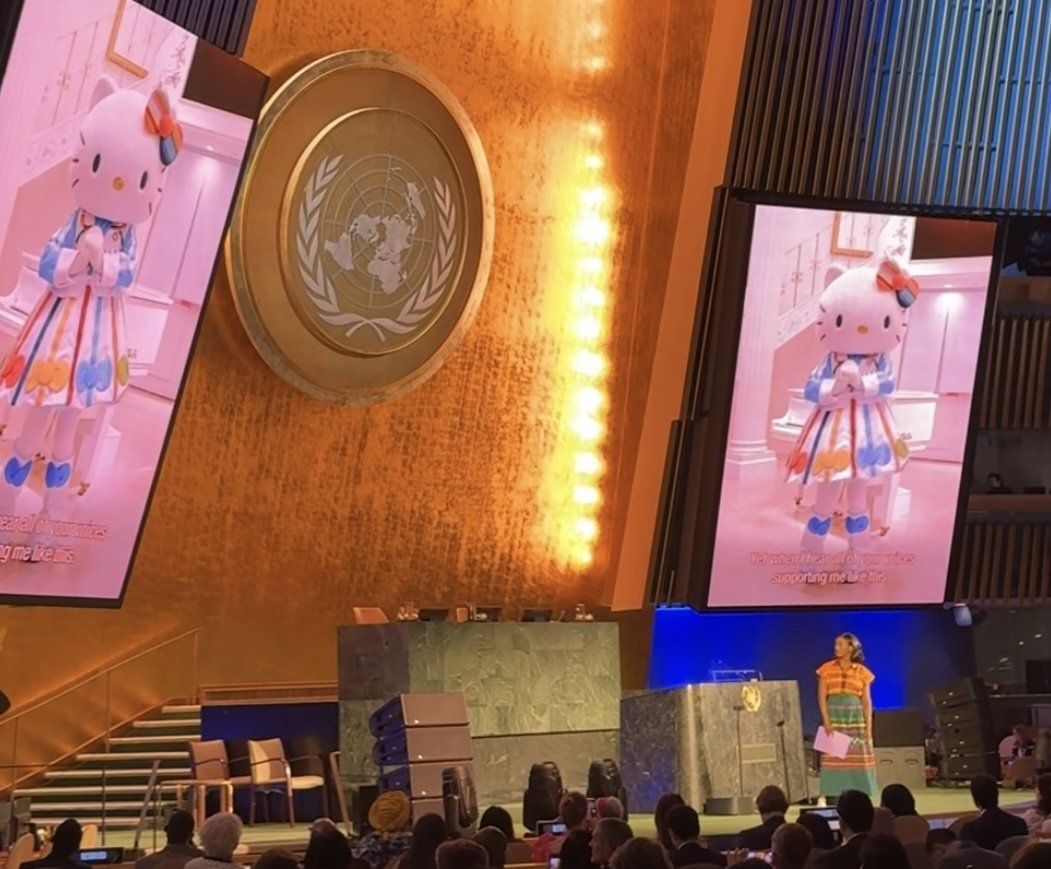“What kind of world would you like to live in?” asked Hello Kitty – yes, the cartoon cat – before a group of youth leaders gathered in the UN’s General Assembly hall on Friday.
They were there to represent countries and causes at the Summit for the Future, a high-level meeting that culminated in the “grown-up” world leaders endorsing a 60-point Pact for the Future on Sunday.
That pact, adopted by the UN’s 193 member states, includes everything from a compact on AI governance, to urging countries to supercharge their sustainability efforts, to pushing for Africa’s inclusion on the Security Council, to devising a global governance framework for preventing war in outer space.
But a key part of the Pact is a “Declaration on Future Generations,” which promises to create “meaningful opportunities for young people to participate in the decisions that shape their lives, especially at the global level.”
And that’s where the UN, it seems, has a problem.
During the summit’s opening ceremony, Secretary-General António Guterres acknowledged that the underrepresentation of young people at the UN was an issue that the institution is keen to address.
As of 2022, only 3.7% of UN employees were under 30 years old. Guterres pledged to improve that, saying it is important to have young people “working [at the UN] daily, where the decisions are made, where ideas are born.”
The UN, he said, is putting mechanisms in place to “ensure that in the [UN] decision-making process, there are moments where there is an active intervention of young people, not just their consultation.”
But many young people felt that they should have been involved in the finalization of the Pact for the Future on Sunday, which they reported only involved UN stakeholders.
“Almost none of the youth delegates were really engaged in the process" of endorsing the pact, said Ukraine’s Youth Delegate to the UN, Yuri Lomikovskyi, age 22.“A declaration on youth participation was made without youth participation.”
He faulted the pact for repeating old initiatives and frameworks – like the Paris Agreement, the UN Charter, and the UN Declaration of Human Rights – without adding “mechanisms to actually make them happen, especially amidst modern challenges,” including the wars in Ukraine and Gaza wars, the climate emergency, and democratic backsliding around the world.
Josh Oxby, 26, the youth Global Focal Point for the UN’s Sustainable Development Goal on energy, expressed a similar concern about accountability.
“It's all very well and good to commit to these ideas and to focus on meaningful engagement,” he said, “but the issue now is what can we do to hold it to account or challenge it in the future?”
These views represent a broader feeling among the youth delegates. In a live poll conducted during the event, only 3% of the 669 youth participants said they felt they had direct power in shaping the Pact’s agenda, with several accusing the UN of “youth-washing.”
The youth delegates said they felt valued, but only to a certain degree. “When there are young people in the room, we make the older generations think about their own families and kids, " says the UN’s youth development delegate Asma Rouabhia, 28, “but there is a feeling that because young people are not as experienced, we don’t really know what we are talking about.”
“I might not have all the technical knowledge, but I have the personal passion,” she added. Rouabhia became an energy advocate because insufficient energy access in her native Tunisia caused her mother to nearly freeze while giving birth to her.
The UN’s Assistant Secretary-General for Youth Affairs, Felipe Paullier, says that while polls show that young people have outsized faith in multilateralism, the UN “risks losing them if it is not conscious about the changes it needs to make structurally, to increase youth participation.”
“Fifty percent of the world’s population is under 30 years old,” says Paullier, “if [the UN] doesn’t make these changes, we are screwed.”
